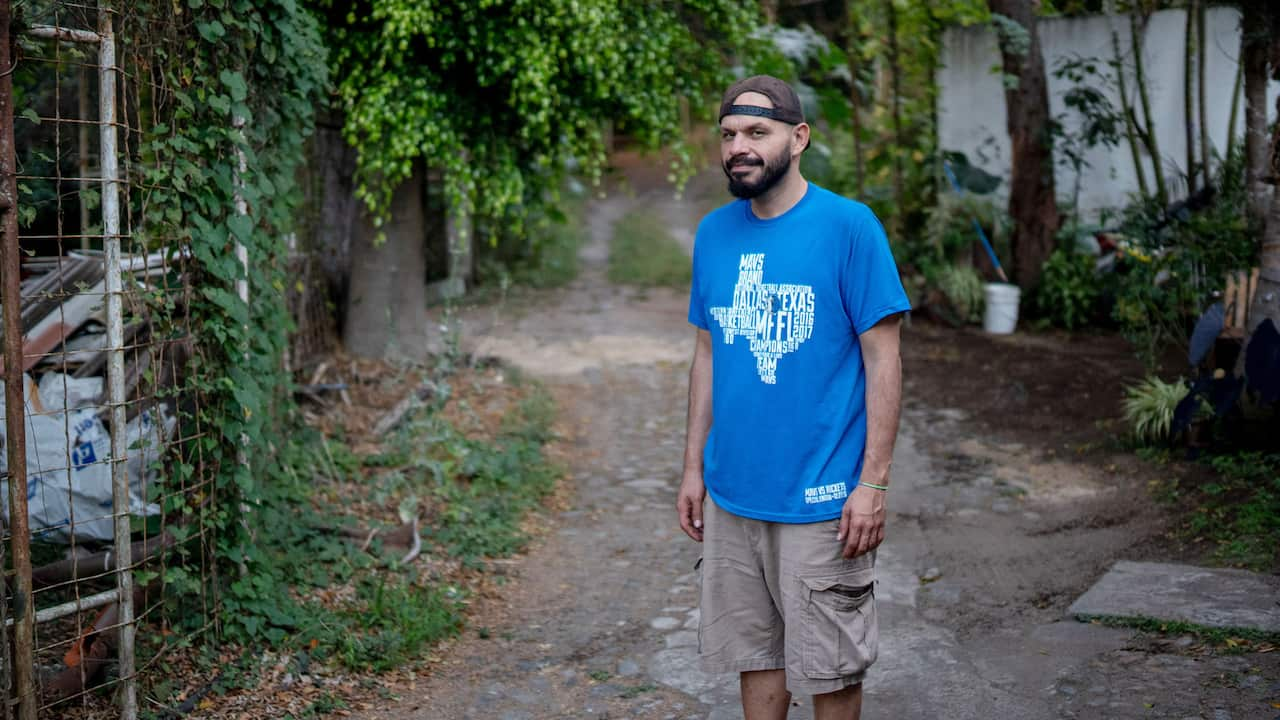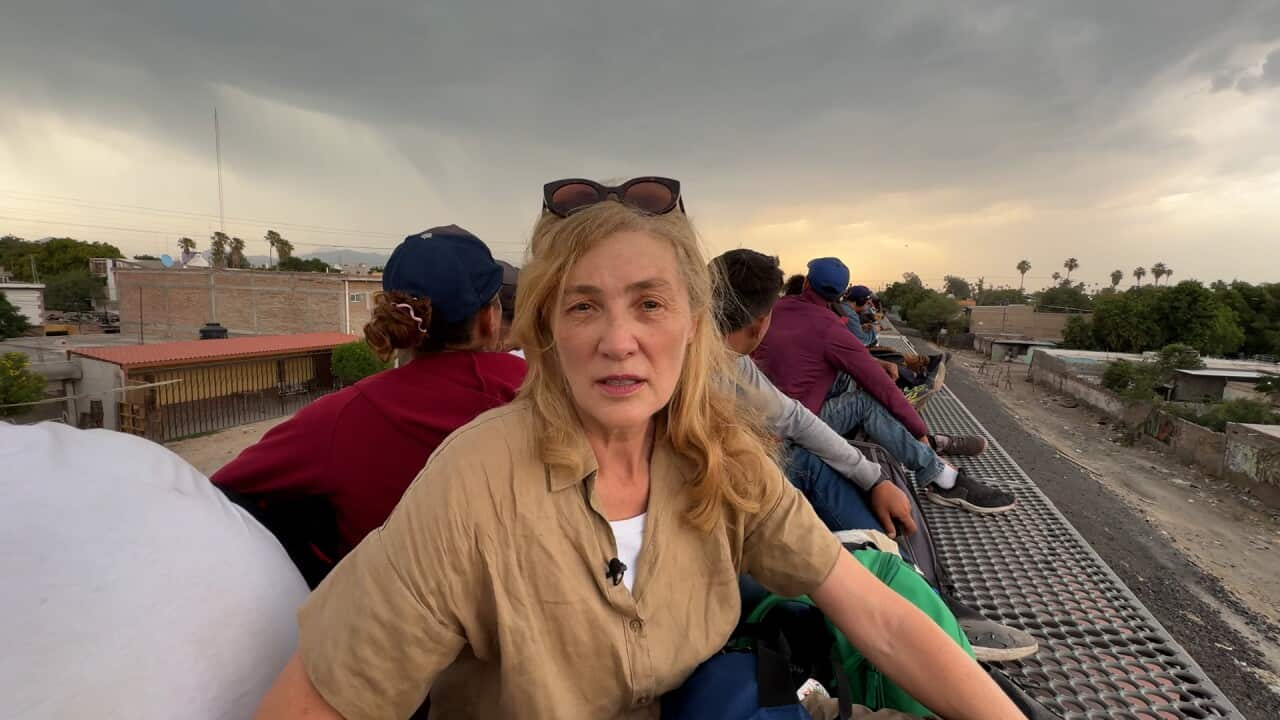After months of promising a sweeping immigration crackdown, newly sworn-in US president Donald Trump has shared the details of what it will entail.
In , he pledged to declare a national emergency at the US-Mexico border and send troops there. He also announced the beginning of ‘the process of returning millions of criminal aliens back to the places from which they came.’ He also made it clear that asylum and refugee admissions would be affected too: he’s bringing back a policy that requires certain asylum seekers to wait in Mexico for their US court hearings.
Trump called illegal immigration ‘an invasion’ and said the US government has failed to protect its citizens while providing ‘sanctuary and protection for dangerous criminals, many from prisons and mental institutions that have illegally entered our country from all over the world.”
In the lead-up to Trump’s inauguration day, Dateline spoke to some of the people directly targeted by his deportation threat: Guatemalans.
'We live in constant fear'
Yolanda says that every single family in her small rural community of San Martin Jilotepeque in central Guatemala has at least one member working in the United States sending money back home to their families.
Her husband, who is a painter and works in home remodelling, has been living in the US for two and a half years.
"The money he sends us is very important, since there are limited employment opportunities here," she said.
"It sustains me, our two children, and his parents; it covers everything, including food, health care, education, clothing and some other expenses helpful to the community."
"But he is undocumented, so we live in constant fear every day because he could be deported," said Yolanda, whose name has been changed to protect her husband's identity.
Trump has promised to launch , which has sent shockwaves throughout the immigrant communities within and outside the US.
There are an estimated 11-12 million undocumented immigrants living and working in the US illegally, according to the Pew Research Center.
Seven per cent are reportedly from Guatemala, a Central American nation of 17.6 million people, more than half of whom live in poverty.
Because of these economic conditions, the country is economically dependent on financial remittances sent by migrants working abroad.
Remittances accounted for more than $32 billion (US$20 billion) and approximately 19.5 per cent of Guatemala's gross domestic product in 2023.
Almost all of that money was sent by individuals working in the US, followed by small percentages sent from Canada and Mexico, according to the International Organisation for Migration.

San Martin Jilotepeque municipality in rural Guatemala is comprised of dozens of villages and hamlets with a total population of under 100,000 people, most of whom are Indigenous. Lack of employment opportunities leads to high rates of migration, predominantly to the US. Source: Supplied / NGO Nursing Heart
"It's not easy to leave your home. My husband and so many like him work very hard to make an honest living (to support their families). It would be unjust for them to be deported."
A desperate bid for survival
For many Guatemalans, high unemployment, a volatile informal economy as well as social exclusion and systemic inequality faced by Indigenous and rural populations make migration a desperate bid for survival.
A source working for a United Nations agency assisting Guatemalans to migrate legally and safely via resettlement programs said there are many other factors motivating Guatemalans to leave.
These factors are often at odds with the increasingly belligerent rhetoric Trump has deployed to promote and defend his mass deportation policies, the source said.

Migrants sit by the iron fence waiting to be processed by the US Border Patrol near the Jacumba Hot Springs after crossing the US-Mexico border in San Diego, California, on 13 June 2024. Credit: VCG/VCG via Getty Images
An found immigration had no negative impact on the unemployment rates of US citizens and filled the gaps in the labour market.
Another found that immigrants contributed more money to the US economy than they sent abroad in remittances.
However, in the UN source's experience, many migrants aren't just "looking for a better future" when they move to the US.
"Many migrants are running for their lives, trying to avoid gangs and death threats, while others are running away from violence — people from the LGBTQ+ community, women and children facing psychological, physical, economic and sexual abuse from the 'head of the house' — and don't feel protected by the Guatemalan police," they said.
Migrants, they said, always first try to enter the country legally.
"They apply for a visa, look for refugee status or political asylum … and only attempt to illegally enter the target country if all of this fails," they said.
When legal means have been exhausted, already impoverished families are often forced to take out loans at exorbitant interest rates or sell property to fund the dangerous journey to the US-Mexican border — without any guarantee of success.
The services of human traffickers, or coyotes, can cost anywhere between 60,000-125,000 quetzals (approximately $12,000–$25,000) per person, which amounts to several years of minimum-wage earnings.
And legal migration may soon become harder, the UN source said, because some organisations that help prospective migrants are dependent on US funding, which could be slashed under a Trump administration.
The Guatemalan community's fear surrounding Trump's mass deportation policies is "huge", they said.
Stream free On Demand

The Beast: Mexico's Deadliest Train
episode • Dateline • Current Affairs • 30m
episode • Dateline • Current Affairs • 30m
The devastating human toll of mass deportation
The US has deported millions of undocumented immigrants in the past.
During Trump's first term, for instance, 1.5 million people were sent back.
This time, he has promised a crackdown on a much larger scale by declaring a national emergency and deploying the military to assist deportation efforts.
While it's unclear how and if his plan will work, it threatens to tear even more mixed-status families apart.

Carlos Cordero was brought to the US illegally as a four-year-old child by his mother and spent most of his life there before being deported to Guatemala in 2019.
In 2019, after spending six months in detention and thousands of dollars fighting his case in court, Cordero was sent back to his native country of Guatemala with hundreds of other deportees, leaving behind his wife, his five-year-old son, and his teenage daughter from a previous relationship.
His wrongdoing? Arriving in the US with his mother illegally at just four years old.
"Landing in Guatemala was a culture shock. Coming back to a place of which I had no memory of was like going to a foreign country, and most people here don't accept me as Guatemalan because of the way I look and talk," Cordero said.

Deportee Carlos Cordero had to leave behind his wife, five-year-old son, and teenage daughter. Millions of mixed-status families may be impacted by Trump's harsh immigration policies.
"He couldn't understand why his dad just didn't come home one day. He cried every day and was angry at everything. It was so bad that my wife had to enrol him in anger management classes.
"Imagine, a five-year-old in anger management classes."
'Returnees often haven't bathed for up to two weeks'
According to a source in the Guatemalan Migration Institute, who provides psychological assistance to deportees and spoke on condition of anonymity, the already insufficient support provided to returning Guatemalans will be overwhelmed if Trump enacts his proposed mass deportation policies.
"Returnees often haven't bathed for up to two weeks. They're exhausted, hungry, dehydrated and emotionally unstable. (Many deportees) report being mistreated in the US, and are angry and frustrated," they said.
"Most are so disoriented they're unfamiliar with the routes to return to their places of origin, have no money to get there, or lack family or friends in Guatemala (in order to resettle)."
Cordero, who's now living and working in the city of Antigua Guatemala, says he doesn't know how to feel about the mass deportations Trump has promised.
"But I feel like Guatemalans see all of this happening and lose hope," he said.
"What (people in the US) have to understand is that Guatemalans don't cross into the US because they feel like it or because they are trying to cause harm. They come because it's their only remaining choice.
"All they want is a better life and nothing else."













